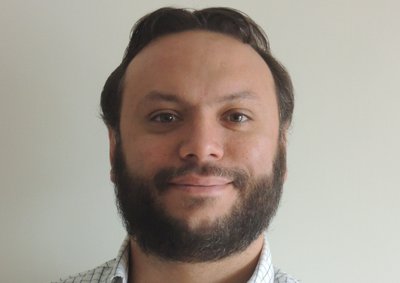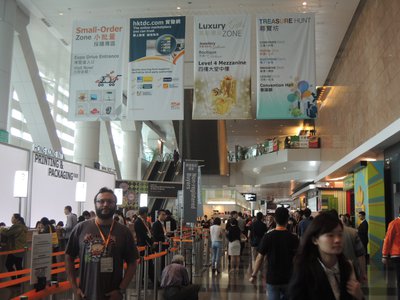13 May 2013
MILE Alumni Profiles: Manolo Delgado
From Lima to Hong Kong: MILE Alumni Manolo Delgado shares how the MILE Programme gave him the foundation he needed to head a purchasing office spanning 12 different countries.
Which year(s) did you participate in the
MILE Programme? I participated in MILE 7 from 2006-2007.
What drew you to the Programme?
Having finished a Master’s degree in political science in Spain, I felt I was lacking a vital piece to understanding development issues, especially applied to Latin America. In my opinion, trade is so relevant to the economic and social development of countries. I started researching where I could improve my knowledge of the link between politics, economics and trade – which ultimately become government public policies that directly affect lives in the developing world. After some time, it was clear that the WTI was the best place to go to if I wanted to have a holistic picture of such matters.
What is your fondest memory of your time at the WTI? What stands out as having been a particularly positive experience?
Certainly, the bonds created were a key element. I used to call my cohort friends “comrades in arms”. That is how one feels. You fight and struggle together every week, again and again for more than thirty weeks. It might sound farfetched, but I think it’s a bond that for us – as people who have never experienced battle – seems to be just as strong. Another characteristic to highlight is that this bond is among people from more than twenty nationalities.
True international professionals know how to deal with cultural diversity. Having been Class Representative for the Programme, I had the pleasure (and frustrations) of dealing with the subtle nuances of different cultures. I value that experience to this day. I have plenty of memories that I hope I can use when I write a novel about the MILE experience. I’ll keep you posted.
What would your advice be to potential MILE students?
The MILE Programme is not to be taken lightly. Your commitment to excellence must be very strong and based on a rooted certainty that you can handle extreme stress. I saw really bright people crumble under the pressure of weekly assessments and the speed of change in which courses vary week by week being taught by the best minds in their fields from all over the world. My best advice is to be mentally ready for the toughest intellectual challenge of your life. When you think you can’t go any further, have a Swiss chocolate or beer…ok maybe two.
What position(s) did you obtain after having completed the MILE Programme? What do you do in your current role? What makes it interesting?
Right after having completed the MILE Programme, I did a traineeship in the External Relations Division at the
WTO, which allowed me to use not only the deep understanding of trade law that I obtained from the Programme, but also my previous experience in communications and political science. Currently, I head a purchasing office in Hong Kong for a Latin American corporation working in 12 countries in South and Central America and Europe. It’s a very interesting job in which I engage and negotiate with more than 250 factories all over China to obtain the best conditions for quality, payment terms and delivery time for several product categories. It’s quite hectic, but I love travelling and experiencing new things.
How did the MILE Programme prepare you for this position?
The MILE Programme gave me an overarching understanding of trade in all its different facets. Entering the MILE Programme, I had some doubts. I thought that it might be too theoretical, but I was wrong. The knowledge I acquired during the MILE Programme applies to the real process of trading tangible products across the world. Issues like trade facilitation, rules of origin, tariff and non tariff barriers, FTAs, antidumping, safeguards and countervailing measures are issues that I encounter constantly as they shape the world of “real” trading. Moreover, this knowledge allows me to recognise business opportunities, as the frame for international trade shifts over time. Trade regulation is dynamic. Where there’s change, there’s opportunity.
Where in the world are you located now? Is it where you grew up?
I am currently based in Hong Kong working directly with Mainland China. I grew up in Lima, Peru.
Is there anything else you would like to say?
In the end, the MILE Programme is not just a demanding intellectual endeavour. It’s a life changing experience. If you survive the MILE Programme, you know you are ready to face almost anything.
It gave me a sense of self confidence that was hidden somewhere inside me, which is the best professional asset any Master’s program can provide you with.



